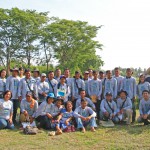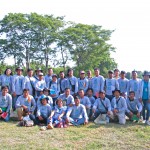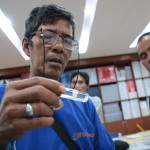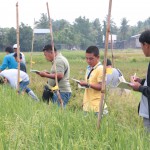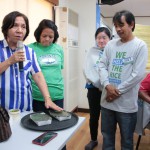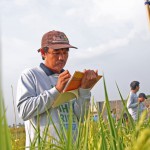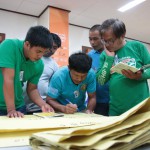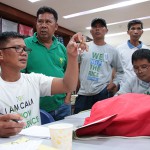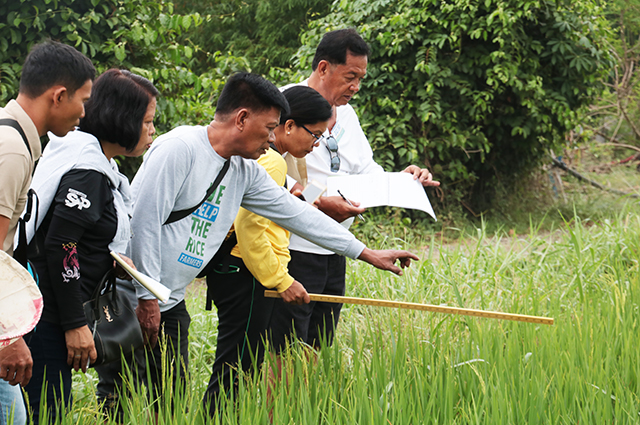
In preparation for the wet season when pests and diseases are usually prevalent, local farmer technicians (LFTs) from Pangasinan completed a week-long specialized course at the PhilRice Central Experiment Station, June 4-8.
Ev P. Angeles, training coordinator of PhilRice’s Technology Management and Services Division, said LFTs are trained to help their fellow farmers in identifying, assessing, and managing major pests and diseases in rice.
She said LFTs are model farmers in farming communities who are being tapped by the Department of Agriculture to complement local agricultural extension workers in providing technical assistance to farmers.
“We chose participants from major rice-producing areas of the province who need to strengthen their pest and disease diagnostic skills or those who have not undergone other intensive field diagnostic and pest management skills training. Through practical, hands-on exercises, we hoped to enhance their competence in this critical aspect of rice crop management,” she said.
The 30 training participants enhanced their skills on pest identification, disease diagnosis, and damage assessment. They learned the principles of Integrated Pest Management (IPM), Agroecosystems Analysis (AESA), and the PalayCheck System to help them in making more informed decisions in pest and disease management.
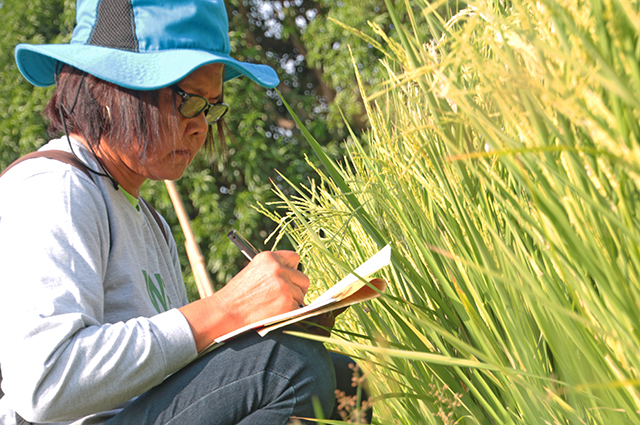
Carolina Badaguas of Sual, Pangasinan, said that she learned proper weed management from the training.
“Weeds are rampant in our area and my fellow farmers often resort to spraying generous amount of herbicide. We learned that practicing thorough land preparation is important in managing weeds as it helps facilitate good management of water, nutrients, and pests,” the 54-year-old LFT said.
PhilRice experts on weed management said through this practice, weeds are buried under the soil so the shoots are separated from the roots.
Meanwhile, Solomon C. Ibay, 56, of Asingan, Pangasinan had understood the importance of getting accurate diagnosis of rice diseases.
“When we know how to identify the kind of disease that infects our field, it is easier for us to make the right decisions in implementing the needed management practices. We also learned about harmful and friendly organisms,” he said.
He added that the training program provided the avenue for the LFTs to get additional, accurate, and science-based information from the experts.
Monitoring and evaluation activity will be conducted to assess the impact of the training program.
Pangasinan placed 3rd in the top rice-producing provinces in the Philippines in 2017 according to Philippine Statistics Authority.
Photos taken by Renz Romyl De Joya during the training:

